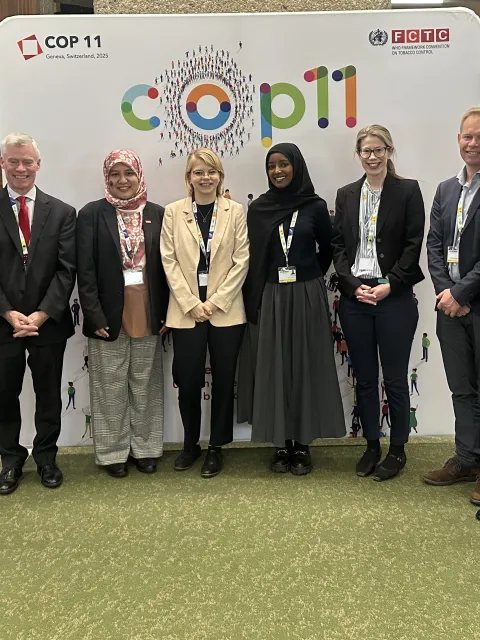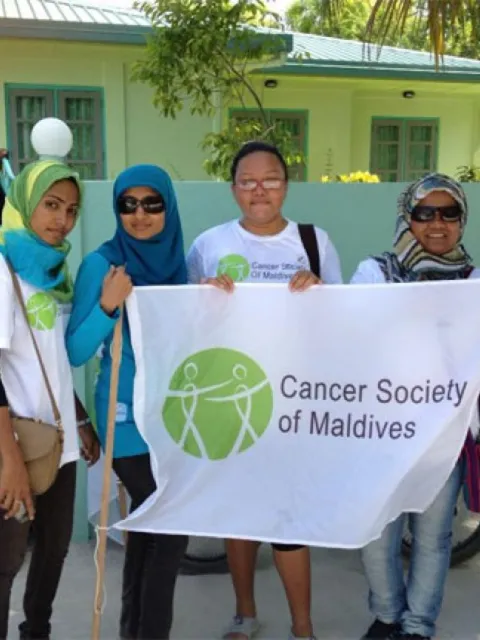Protecting Slovenian youth from tobacco

A pathway to end, through regulation, the toll that tobacco consumption exacts on public health is set out in the World Health Organization’s Framework Convention on Tobacco Control (FCTC). The measures outlined in the FCTC address the diagnosis and treatment of tobacco dependence and counselling services that can assist people to end their use of tobacco. The FCTC also suggests how to include them in national health and education programmes and how to make the treatment of tobacco dependence accessible and affordable.
Following the FCTC, Slovenia has implemented measures to reduce tobacco dependence and use. In particular, a new strategy to reduce the harms related to smoking, “Slovenia without tobacco 2020 – 2030” is about to be ratified by the Slovenian Parliament. The strategy anticipates that Slovenia will be a smoke-free country by 2030, with only 5% of inhabitants smoking. This should be achieved by an increase in tobacco excise duties (taxation), the implementation of best practices, observance of the law, “mystery shopper”[1] initiatives, and the reduction of smoke exposure and smoking among children and youth adults.
I have 18 years of experience in smoking cessation programmes and counselling at the national level. I have conducted smoking cessation programmes in primary and secondary schools and with companies. I have counselled women during their postpartum period and vulnerable groups like Roma communities, as well as patients with chronic obstructive pulmonary disease, cardiovascular diseases or diabetes… Our organisation, the Slovenian Coalition for Public Health, Environment and Tobacco Control, offers programmes for public health events (e.g. Non-Smoking Festival, Healthy Breakfast), as well as carbon monoxide and oxygen measurements and presentations about healthy lungs.
I have noticed that children who have followed the “My Non-Smoking Vow” – an interactive programme for pupils 9-14 years of age with a view to prevent them from starting smoking – cannot believe that tobacco products are still being sold. They are worried and scared for their parents who smoke and have health issues. They wanted to have their carbon monoxide and oxygen measurements done in the morning to see if their parents’ smoking was affecting them. My Non-Smoking Vow initiative has engaged some 20,000 pupils since its inception.
Another programme called “Free Hands, Clean Lungs” promotes cessation and non-smoking among adolescents. It has been going on for 10 years, engaging some 15,000 participants, and pupils in secondary schools who have been part of the programme have said they wish that they had been warned earlier how dangerous and harmful tobacco products are.
After many years of working in the field of smoking cessation, I still find the personal stories of smokers very sad. A lot of smokers come to us with personal problems. Sometimes neighbours smoke on the balconies or in the hallways of residential buildings, and people cannot air out the cigarette smoke. Even when people know and are aware of the effects of passive smoking, they still cannot do anything about it, especially if a parent or a neighbour smokes. They call us to ask who they can turn to for help in removing the cigarette smoke in their home environment.
I enjoy working with youth and children. I am very happy that I was able to adopt models of good practice from abroad and have met many health professionals who supported me in my efforts to prepare proposals for tobacco control legislation in Slovenia. Slovenian law has changed, many people are better protected now, with smoking prohibited in public places, but novel tobacco products need more attention. In the past few years, cigarette consumption among children and young adults in Slovenia has been decreasing; however, e-cigarette use in this group is steadily increasing. The best way to protect young people is by raising taxes on tobacco, tobacco-related and novel products.
Our organisation conducted a case study analysis of demand for tobacco products in Slovenia and the results validate such an action. Therefore, we support the adoption by the Slovenian Government of an amendment to the excise duties law. This amendment is currently my main challenge. Programmes for smoking cessation need better financing and my hope is that they will receive part of the tobacco revenues that higher taxes can generate.
_______________________________________
[1] ;A “mystery shopper” is someone who passes as a real customer in order to collect information. For tobacco control, initiatives are generally aimed at age verification.
Banner image credit: Elsa Olofsson at CBD Oracle
Last update
Tuesday 10 August 2021Share this page


